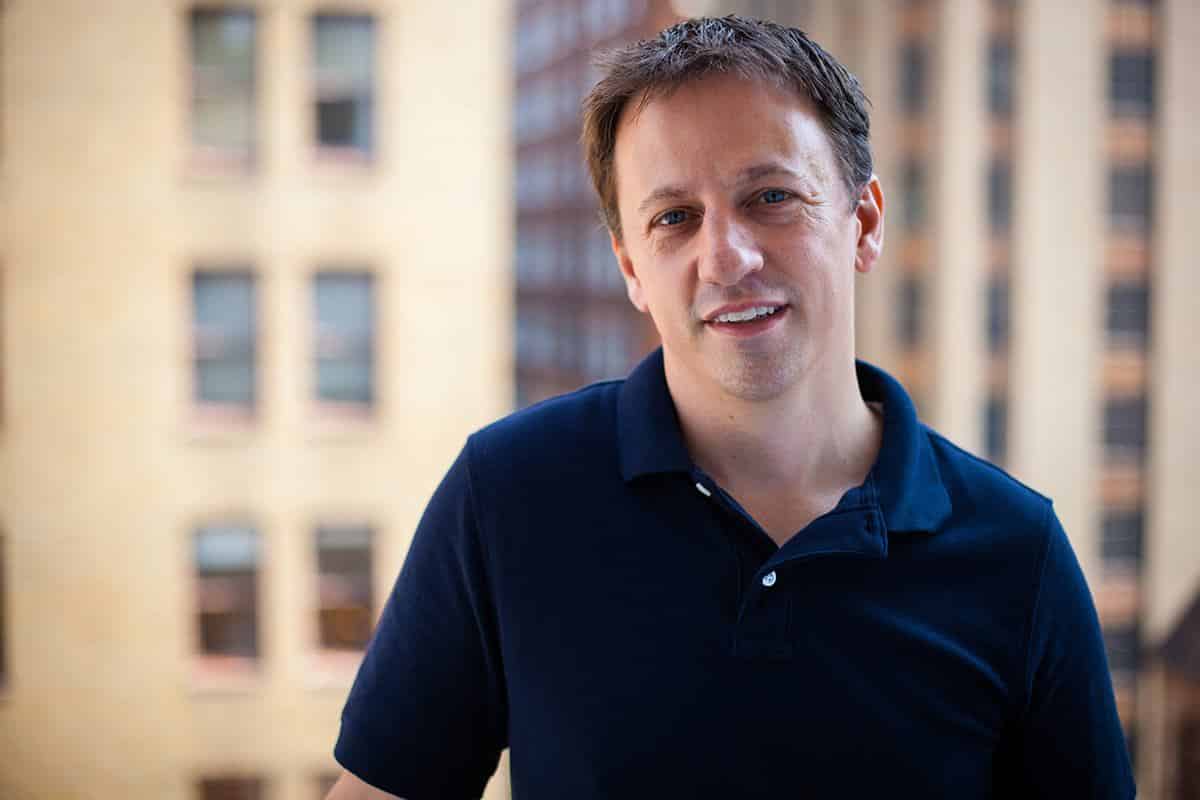If you fear failure, you miss a lot of opportunities.
Dennis Egen is founder and president of Engine Room Technology, an IT, cybersecurity and technology consulting firm in Philadelphia, PA. Engine Room develops software for digital and mobile platforms as well as provides airtight data security for its clients. Egen’s motto is, “Dream in code and think like a hacker.” He also teaches Software Engineering at Rutgers University. Egen earned both a B.S. and M.S. degree from Rutgers University.
Where did the idea for Engine Room come from?
As CTO at a digital ad agency, I found that there was a gap in the way marketers brought their ideas to life. Clients looked to the agency to provide the technology expertise for both implementation and security, and the agency just didn’t have the technology capability to deliver the best solutions. I figured that a company that was “tech” first, but marketing focused, could fill that gap.
What does your typical day look like and how do you make it productive?
There’s no such thing as a typical day. Day to day, I never know what I’m going to get in to. I try to be prepared for the uncertainty every day brings.
How do you bring ideas to life?
The “day-to-day” can get in the way of new ideas. It’s a constant battle to give our employees the “head space” and the time they need to do some fresh thinking. We hold “Developer Days” once or twice a month when we give our people the entire day to focus on their housekeeping list or to play with and learn about new technologies that interest them.
What’s one trend that really excites you?
The focus, finally, on technology security; that it is now getting the same billing as technology itself and is being emphasized at the highest operating levels. I’m excited by the increased emphasis on engineering.
What is one habit of yours that makes you more productive as an entrepreneur?
As Engine Room has moved from start-up mode to being a full-fledged company, I’m trying to focus more on my own presence; trying not to get too bogged down in the day-to-day. I’m also exercising. I bought a peloton, and I’m loving it.
What advice would you give your younger self?
Be less fearful of failing. If you fear failure, you miss a lot of opportunities.
Tell us something that’s true that almost nobody agrees with you on.
I’m a firm believer that when you’re trying to change a culture or change habits in an organization, you can’t just rely on telling everyone what they should do. I believe in creating options and removing friction for employees. I believe in the “Nudge” theory. It’s a behavioral economics concept that believes in the power of positive reinforcement and indirect suggestions to influence motives and decision making among groups and individuals – rather than direct instruction or enforcement.
As an entrepreneur, what is the one thing you do over and over and recommend everyone else do?
Think about alternatives to the way you’ve done things in the past. Just because you did something that was successful – or it didn’t catastrophically blow up – you should always go back and reassess your actions. Always ask, “Is there a better way.”
What is one strategy that has helped you grow your business?
Focusing on existing relationships 90% of the time rather than creating a sales team to go out looking for new business. Growth is more organic that way, and it is more sustainable. Having ongoing conversations with clients and always being truthful builds respect over time, and paves the way for stronger relationships and sustainable growth.
What is one failure you had as an entrepreneur, and how did you overcome it?
If I begin to get away from focusing on existing relationships (#9 above), I start to get too ambitious, and that stunts growth. Another common failure has been not being selective enough in the work that we take on; trying to force a client relationship or type of work.
What is one business idea that you’re willing to give away to our readers?
There’s a lot of unused processing power out there (phones, any kind of device) that’s only being utilized in business hours. I think there’s a free, open market to buy, sell or trade compute cycles.
What is the best $100 you recently spent? What and why?
Shoes for my peloton. Before I started the peloton class, I’d been in “the grind.” The classes – and my shoes – have helped me to focus on general wellness, to be healthier, to be at my best.
What is one piece of software or a web service that helps you be productive? How do you use it?
Evernote. I live by it. I use it across all my devices. I can make notes to myself, whether I’m on a train or in a meeting.
What is the one book that you recommend our community should read and why?
Daring Greatly by Brene Brown. It’s about putting yourself out there and being vulnerable. The subtitle of the book is “How the Courage to Be Vulnerable Transforms the Way We Live, Love, Parent and Lead.” I think everybody should read it.
What is your favorite quote?
“During the gold rush it’s a good time to be in the pick and shovel business,” by Mark Twain. To me it means that there’s always a lot of noise out there about the next great thing, the latest trend; and a lot of people will be out chasing that noise. I think Twain’s advice is to keep your head down, focus on the fundamentals and you’ll do well over time.
Connect:
Dennis Egen on Twitter: .
Dennis Egen on Facebook: .
Dennis Egen on LinkedIn:
Mario Schulzke is the Founder of ideamensch, which he started a decade ago to learn from entrepreneurs and give them a platform for their ideas.

